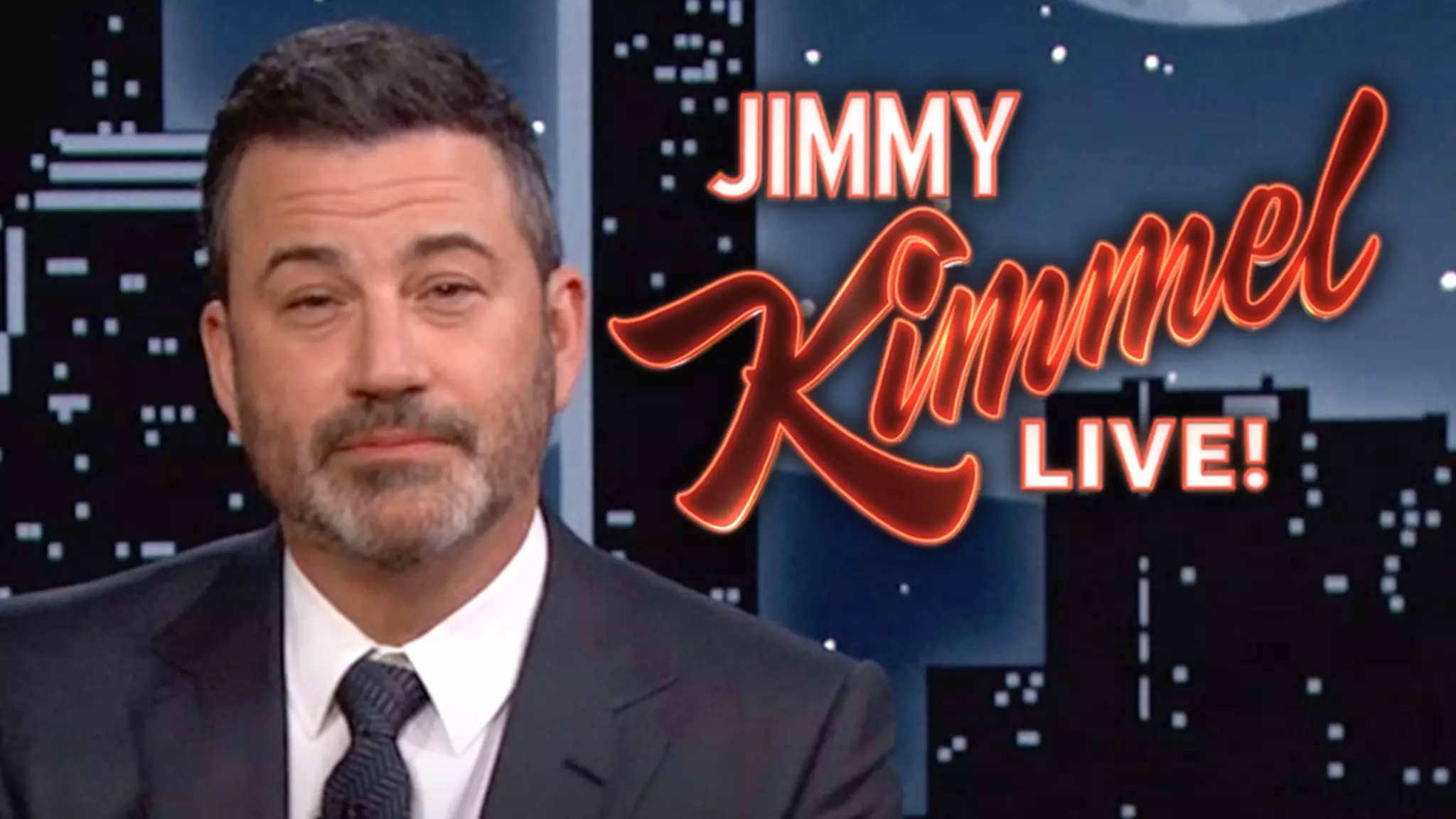In recent times, the entertainment industry has been thrust into a tumultuous debate over free speech, exemplified by ABC’s decision to suspend “Jimmy Kimmel Live!” following controversial comments made by comedian and host Jimmy Kimmel. This move has ignited a firestorm among Hollywood elites and free expression advocates, revealing an unsettling trend: the encroachment of corporate and political forces on artistic voices. Such censorship raises profound questions about the boundaries of acceptable discourse in a democracy, especially when the opinions challenge powerful figures or institutions.
The immediate response from Hollywood figures underscores a collective resistance to this suppression. Actors such as Ben Stiller, Rosie O’Donnell, Wanda Sykes, and many others have openly condemned the suspension, framing it not merely as a breach of individual rights but as a threat to the foundational principles of free speech enshrined in the First Amendment. Their voices echo a shared concern: when corporations and government intertwine to silence dissent, democracy itself is in jeopardy.
Some critics argue that this incident is not an isolated case but rather symptomatic of a broader manipulation of free expression. The quick mobilization of celebrities and industry organizations demonstrates that the entertainment community refuses to accept the normalization of censorship, even when political sensitivities or public backlash threaten to silence critical voices. The message is clear: suppressing dissent under the guise of maintaining civility or political correctness only weakens the moral backbone of society.
The Political Climate and Its Impact on Cultural Freedom
The controversy surrounding Jimmy Kimmel’s comments reveals a deeply polarized political landscape, where symbols of free speech are increasingly viewed through partisan lenses. Kimmel, known for his satirical humor, made remarks referencing the tragic murder of Charlie Kirk, a controversy that the networks and corporate owners perceived as inappropriate content warranting suspension. Many in Hollywood argue that this decision, fueled by external political pressures—particularly from conservative figures like Donald Trump—sets a dangerous precedent: selectively curating content based on ideological loyalty rather than journalistic or artistic integrity.
The reactions from prominent political personalities, notably Donald Trump’s praise of the suspension, illustrate how political capital is being leveraged to shape media narratives. This ideological battle underscores an alarming trend: the weaponization of corporate influence to curtail viewpoints that deviate from a specific political orthodoxy. When free expression becomes collateral damage in political disputes, the very essence of a serious, pluralistic society erodes. Opponents of the decision contend that such acts of censorship are more characteristic of authoritarian regimes than democratic societies.
Furthermore, the support from organizations like the Writers Guild of America and SAG-AFTRA reflects a broader recognition within the entertainment industry that safeguarding free speech is essential for a healthy cultural ecosystem. Their statements emphasize that the right to voice unpopular or controversial opinions is what sustains creative innovation and societal progress. Without it, the industry risks becoming a monolith of self-censorship where artistry is stifled and societal truths are silenced.
The Broader Implications for Society
This incident invites us to reconsider the delicate balance between accountability and authoritarian control. Censorship, when justified as a means to prevent harm or preserve civility, often slides dangerously into suppression of inconvenient truths. Jimmy Kimmel’s suspension exemplifies this: a comedian making pointed remarks about a politically sensitive issue becomes a casualty of the very freedom he often champions.
The ripple effects extend beyond Hollywood’s borders, threatening the core freedoms that underpin democratic engagement. Public protests—such as hanging posters equating political figures with fascist regimes—highlight the grassroots pushback against perceived tyranny. These acts of civil disobedience emphasize that the fight for free speech is not relegated to Hollywood or the political elite; it is a vital struggle for all engaged citizens committed to an open society.
The response from Jimmy Kimmel himself, who has maintained silence publicly but was seen quietly leaving the scene, contrasts sharply with the vociferous support of Trump and his allies. His silence can be interpreted as a form of resistance or restraint—a refusal to capitulate to pressure. Meanwhile, Trump’s open endorsement of the suspension underscores a new era where the suppression of dissent aligns with certain political agendas, raising questions about the future of open discourse in the United States.
Without question, the ongoing debate over free speech reveals an underlying tension in society: the conflict between protecting individual rights and preserving social order. As the entertainment industry and political spheres clash over the boundaries of expression, one thing remains clear—our collective future depends on whether we value and defend the principles that allow for honest dialogue, even when it’s uncomfortable or unpopular. In this battleground of ideas, the true victory lies in unwavering commitment to a free exchange of thoughts, no matter who is listening.

